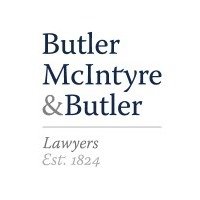Best Arrests & Searches Lawyers in Hobart
Share your needs with us, get contacted by law firms.
Free. Takes 2 min.
List of the best lawyers in Hobart, Australia
About Arrests & Searches Law in Hobart, Australia
Arrests and searches in Hobart, Australia, are governed by a combination of state laws, including the Tasmania Police Offences Act 1935 and the Search and Surveillance Act 2012, as well as common law principles. These laws outline the situations in which law enforcement officers can conduct an arrest or search an individual. An arrest can occur if an officer believes on reasonable grounds that a person has committed, is committing, or is about to commit a crime. Searches can be conducted with a warrant, and under certain circumstances, without one, depending on the situation's exigency. Understanding these laws is crucial for individuals to know their rights and obligations when faced with situations involving police interactions.
Why You May Need a Lawyer
Individuals may need legal assistance in matters related to arrests and searches for several reasons. If you feel your rights were infringed during an arrest or search, a lawyer can help you challenge the legality of the actions taken by law enforcement. Additionally, if you have been charged with an offense following an arrest, legal representation is vital to ensure your rights are protected throughout the legal proceedings and to provide you with a defense. Furthermore, a lawyer can assist in expunging an arrest record if the charges were dropped or if you were found not guilty.
Local Laws Overview
The local laws in Hobart relevant to arrests and searches focus primarily on the conditions under which police officers can arrest individuals and search premises. Under the Police Offences Act 1935, police officers have certain powers to arrest individuals without a warrant for specific offenses. The Search and Surveillance Act 2012 outlines the legal framework for conducting searches. It includes provisions for obtaining search warrants, and under what conditions an officer can search a person or property without a warrant, such as during urgent situations where evidence might be destroyed. It is important to note that individuals retain rights during these interactions, including the right to silence and the right to legal representation.
Frequently Asked Questions
What rights do I have if I am arrested in Hobart?
If you are arrested in Hobart, you have several rights, including the right to be informed of the charges against you, the right to remain silent, the right to contact a lawyer, and the right to have family or friends informed of your arrest. The police must also provide you with an opportunity to seek legal representation before any questioning takes place unless it is impracticable to do so.
Can the police search my home without a warrant?
Police generally need a warrant to search your home; however, there are exceptions. Officers may conduct warrantless searches if they believe there is an imminent risk of danger or that evidence might be quickly destroyed. Other exceptions include situations involving the pursuit of a suspect or when permission is given by someone with authority over the premises.
What should I do if I believe my rights were violated during an arrest?
If you believe your rights were violated during an arrest or search, it is crucial to document everything about the incident as soon as possible. Then, contact a legal professional to discuss your concerns. An attorney can help you navigate the complaint process and, if necessary, assist you in pursuing legal action against the relevant authorities.
Under what circumstances can the police conduct a search without a warrant?
Police can conduct a search without a warrant in circumstances where there is an immediate need to prevent harm to individuals, to prevent the destruction of evidence, or if they are in pursuit of a suspect. Spells such as COVID-19 regulations also provided specific conditions where actions could be taken without a warrant.
Do I have to answer police questions if stopped on the street?
While you are required to provide your name and address if asked by police, you are not obliged to answer any further questions. The right to remain silent means you can politely decline to answer questions beyond your identity without facing penalties, though cooperation and politeness can be beneficial if the matter is routine.
How long can the police hold me without charging me?
In Tasmania, the police can hold you for questioning up to eight hours without charging you, but this period can be extended if a senior officer grants approval. However, after this time, they must either charge you with an offense or release you.
What happens if I am charged following an arrest?
If you are charged following an arrest, you will typically be released on bail and required to attend court on a specified date. It’s crucial to obtain legal representation to help prepare your defense and navigate the judicial process.
Can I refuse a search of my vehicle?
While you can refuse a search of your vehicle, know that the police might have the power to search without your consent if they suspect there is evidence of an offense, illegal substances, or weapons within the vehicle or if refusing the search would prevent the intended law enforcement action.
What should I do if the police want to question me?
If the police want to question you, you should consider seeking legal advice before doing so. You have the right to speak to a lawyer before any questioning takes place, and the right to have a lawyer present during questioning. Speaking to a lawyer can help ensure you understand your rights and any implications of what you say.
Are there specific rules the police have to follow during a search?
Yes, the police must adhere to specific procedures during a search, which includes respecting your privacy to a reasonable degree and conducting the search in a non-destructive manner unless necessary. Any seizure of property must also be documented and justified.
Additional Resources
For those seeking additional information or assistance, the following resources can be of help:
- Tasmania Police: The official state authority provides guidance on police procedures and your rights.
- Legal Aid Tasmania: Offers free legal advice and resources for those in need of legal assistance.
- Find-and-Connect Support Service: Assists with personal documentation requirements, which could be important during legal processes.
- Office of the Ombudsman Tasmania: An independent body offering complaints resolution against government actions, including police misconduct.
Next Steps
If you require legal assistance following an arrest or search, it is advisable to seek the services of a qualified lawyer specializing in criminal law. Start by contacting legal aid services or a professional law firm to schedule a consultation. During your initial meeting, you will typically discuss the details of your case, explore your options, and develop a strategy to protect your rights and interests. Be prepared to provide any documentation or evidence you have gathered to support your case and help your lawyer provide the best possible advice and representation.
Lawzana helps you find the best lawyers and law firms in Hobart through a curated and pre-screened list of qualified legal professionals. Our platform offers rankings and detailed profiles of attorneys and law firms, allowing you to compare based on practice areas, including Arrests & Searches, experience, and client feedback.
Each profile includes a description of the firm's areas of practice, client reviews, team members and partners, year of establishment, spoken languages, office locations, contact information, social media presence, and any published articles or resources. Most firms on our platform speak English and are experienced in both local and international legal matters.
Get a quote from top-rated law firms in Hobart, Australia — quickly, securely, and without unnecessary hassle.
Disclaimer:
The information provided on this page is for general informational purposes only and does not constitute legal advice. While we strive to ensure the accuracy and relevance of the content, legal information may change over time, and interpretations of the law can vary. You should always consult with a qualified legal professional for advice specific to your situation.
We disclaim all liability for actions taken or not taken based on the content of this page. If you believe any information is incorrect or outdated, please contact us, and we will review and update it where appropriate.











